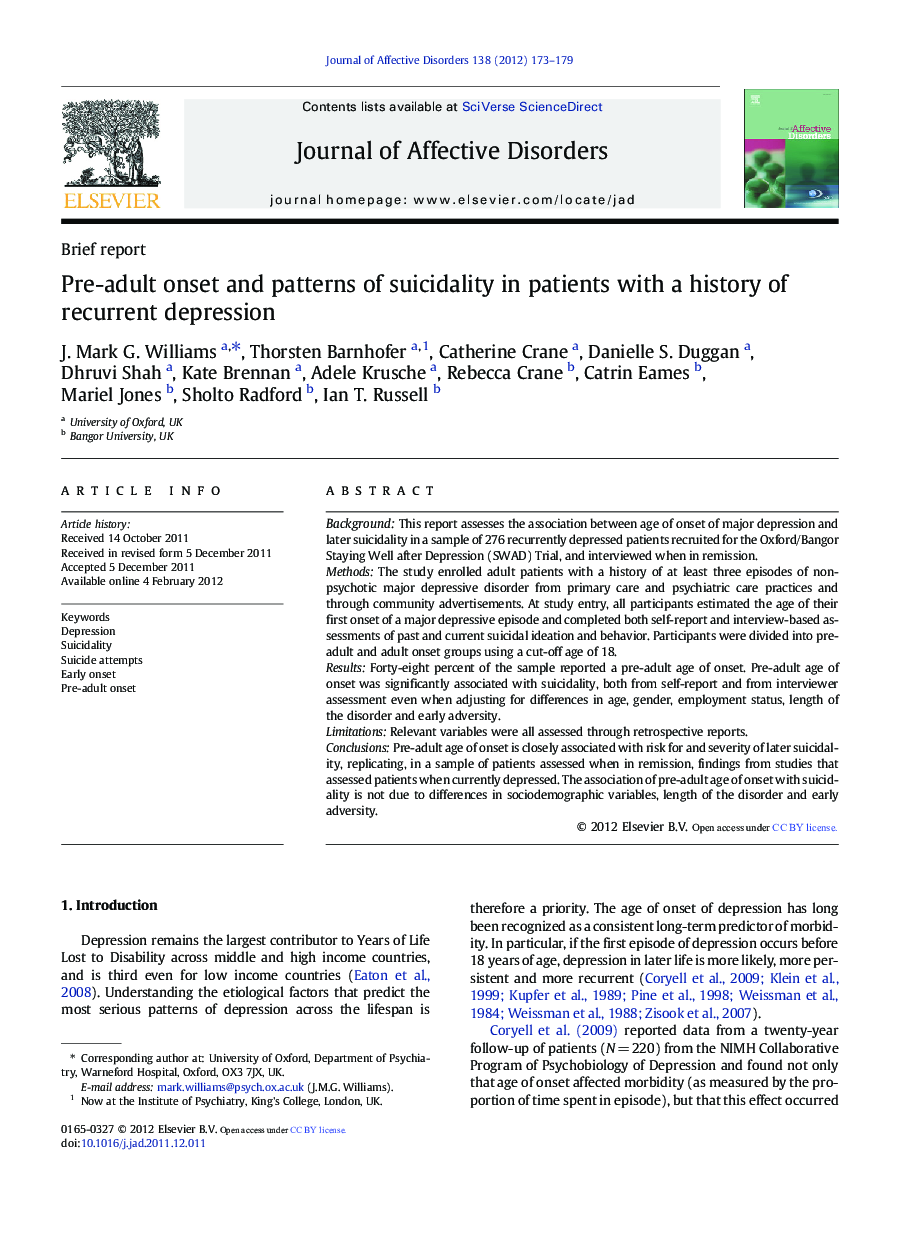| Article ID | Journal | Published Year | Pages | File Type |
|---|---|---|---|---|
| 6235103 | Journal of Affective Disorders | 2012 | 7 Pages |
BackgroundThis report assesses the association between age of onset of major depression and later suicidality in a sample of 276 recurrently depressed patients recruited for the Oxford/Bangor Staying Well after Depression (SWAD) Trial, and interviewed when in remission.MethodsThe study enrolled adult patients with a history of at least three episodes of non-psychotic major depressive disorder from primary care and psychiatric care practices and through community advertisements. At study entry, all participants estimated the age of their first onset of a major depressive episode and completed both self-report and interview-based assessments of past and current suicidal ideation and behavior. Participants were divided into pre-adult and adult onset groups using a cut-off age of 18.ResultsForty-eight percent of the sample reported a pre-adult age of onset. Pre-adult age of onset was significantly associated with suicidality, both from self-report and from interviewer assessment even when adjusting for differences in age, gender, employment status, length of the disorder and early adversity.LimitationsRelevant variables were all assessed through retrospective reports.ConclusionsPre-adult age of onset is closely associated with risk for and severity of later suicidality, replicating, in a sample of patients assessed when in remission, findings from studies that assessed patients when currently depressed. The association of pre-adult age of onset with suicidality is not due to differences in sociodemographic variables, length of the disorder and early adversity.
